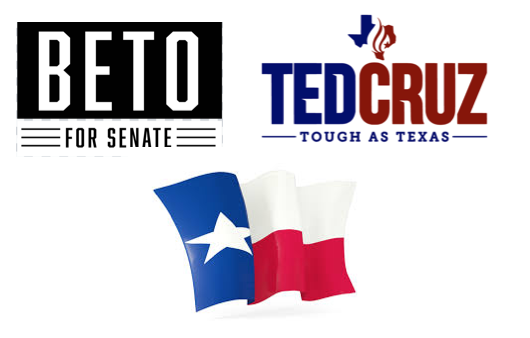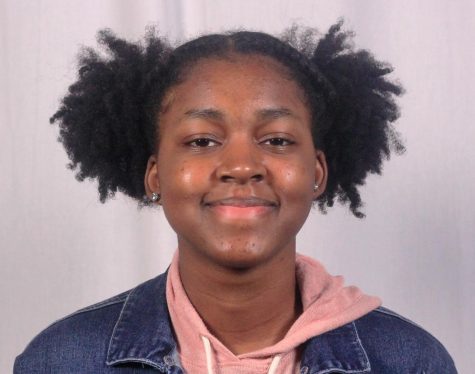What They Believe and Why

The two candidates
At some level, politics have always been taught in school. From the cotton ball beard you glued to Abraham Lincoln’s picture in third grade to the complex levels of government you began to learn about in your high school years, the conversation has always been present. Many students begin voting this year and, knowing more now than just their first through sixteenth presidents, where does their educated decision on which party or candidate to favor come from?
Amanda Mitchell, AP Government teacher, says that political beliefs are discussed a lot in her classroom and is nearly unavoidable in class discussions.
“We discuss [political beliefs] quite a bit in my class just because we do current events. I start my students off at the beginning of the year with a political ideology quiz and it helps students figure out if they, on the political spectrum, lean more toward left or right, right meaning conservative and left meaning liberal. It comes up quite a bit in government class because we end up discussing current legislation and elections,” Mitchell said.
Student beliefs operate within a wide range of options so it’s hard to say, specifically, what most students believe. However, there is research to suggest where the beliefs come from.
“Students in general tend to be more socially liberal. When it comes to gun control there’s a mix, when it comes to gay rights kids tend to be more liberal. It usually depends on the topic. Research shows that majority of students’ beliefs come from their parents,” Mitchell said.
Mitchell, a prime example of her parents’ political participation affecting hers, says she was “extremely invested” in politics as a teenager because her father was a politician.
“My dad was a politician so I grew up in a political family and was a lot more involved than your normal seventeen or eighteen year old. I don’t think you’re ever too young to know what you believe in. I just think it’s important to know why you believe what you believe,” Mitchell said.
The first time she ever voted was in the 1992 presidential election, won by Bill Clinton. Mitchell declined to tell where her own political beliefs reside saying her job is to “teach students how to think, not what to think.”
It’s no secret that personal political beliefs and affiliations are considered inappropriate classroom discussions. Teachers rarely, if ever, elaborate on their own beliefs or ask students to share theirs. With this sort of classroom etiquette in mind, some might say students have been given the need-to-know and left to choose for themselves what side of history to be on. Caleb Dempsey, senior, is one of the students who has chosen.
“I consider myself conservative which is basically republican. As far as republican views it depends on if you go far right or just normal conservatives. My personal views are that I agree with the left when it comes to LGBTQ [rights] but that’s about it,” Dempsey said.
Dempsey became more aware of politics during the last presidential election and says he’s come to this conclusion about his own beliefs through his own research on each of the main political parties.
“I figured out for myself that there were a lot of problems with both candidates and I figured out the things I needed to know on my own even though I couldn’t vote. I just figured I should start my research on these kinds of things early so I’d know my own option and what I want instead of letting someone tell me,” Dempsey said.
The main reason Dempsey cites for not being a democrat is the stark contrast in beliefs. Upon looking into the subject, he became more and more aware of views that tended to be more democratic didn’t sit properly with him.
“There are no liberals for the wall, most are for things like free college that would severely hurt the economy. There’s a lot of things I figured out I didn’t agree with,” Dempsey said.
Dempsey turned 18 on October 23rd but didn’t have time to register to vote by October 7th. Despite his inability to participate, he says he has kept up with midterm elections on and off, looked into each candidate, and can honestly say he throws his support behind Ted Cruz.
“I’m more in support of Ted Cruz. I came to the conclusion that he was a good candidate because I agree with a lot of what he wants for Texas. There’s been some rocky parts during some of his terms but that could be said for any [incumbent] in any election,” Dempsey said.
Off the top of his head, policies Ted Cruz supports that Dempsey agrees with as well were building the wall, tax cuts, and the pro-life discussion. Dempsey believes it’s possible his stance may change depending on the candidate but highly doubts he will ever change parties.
Macie Torres, junior, is another student able to stand firm in their political beliefs and how they came to believe them. Torres became more aware of politics around sixth grade. She isn’t entirely sure what sparked the change, only that her opinions when it comes to political matters were largely formed on her own.
“I don’t have a political party I identify with. I feel like they’re too structured and I’m a very non-structured person. I just go with whichever candidate I think is better for the world. I started to become more aware of politics in sixth grade around age twelve. I started to realize the world wasn’t all unicorns and rainbows and that I needed to be more aware of [politics] because its effects are actually important. My political views come from myself and nothing but myself. I don’t like my parents views,” Torres said.
Despite not identifying with a specific party and leaning toward more liberal views, Torres says she couldn’t be a republican because the things she deems important when voting, many tend to neglect her views for a more self-centered ideology.
“You have to stay a human being. You have to not just think of yourself but every person in society. I know a lot of people who only think of themselves when they vote and you have a certain group that are benefitting from the majority of [policies] and there’s actual destruction in the world but they’re voting only with the focus of keeping their wealth,” Torres said.
Similar to Dempsey, Torres is unable to vote in the midterm elections. However, she has kept up with midterms. She had paid attention to politics “on and off” recently in order to “keep a positive state of mind” but she knows for sure Beto has her support.
“I’m more in support of Beto. Compared to Ted Cruz he’s just more aware of what people want and what they need and what he’s doing. Everything the constitution says elected officials should live up to, he actually does when [other candidates] are focused on benefitting one group of society instead of everyone as a whole,” Torres said.
Torres’ support for Beto comes from Beto’s involvement and overwhelming efforts to gain support such as going on a tour through every county in Texas and even through Mexico, as well as his support for the LGBTQ community. Torres doesn’t believe her views will change and feels more people ought to start thinking like her.

